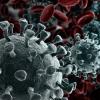Coronavirus OHS Alert
Coronavirus is a group of viruses which normally cause mild illness, with symptoms similar to a common cold. A new strain, COVID-19 was first identified in December 2019 in Hubei Province, China. It is very different from, and more serious than, the usual seasonal influenza outbreaks that happen every year. Symptoms can include a fever, fatigue, dry cough, difficulty breathing and will be accompanied by a fever. Symptoms take an average of 5 days to begin – this differs to flu viruses which tend to incubate very quickly. The virus is transmitted by breathing in droplets that go into the air during coughing and sneezing. The virus needs to be in living beings to survive however, it will survive on surfaces and appropriate cleaning and disinfectant should be applied. Over 80% of people infected with COVID 19 will experience mild symptoms similar to the common cold and may not be aware that they have the virus – this is one of the reasons it spreads easily. A smaller group [15%] will experience more severe symptoms with a minority [5%] suffering from pneumonia. The illness is more severe in older people [over 65 years] or people who chronic diseases such as heart and lung conditions. About 5% of infected people will have a “flu” like illness. It appears that children get very mild symptoms. As this is a new virus the health information is continually being updated. 13 March 2020.
HOW DOES IT SPREAD?
The main way the virus spreads is by contamination when someone carrying the virus coughs or sneezes. The air droplets are breathed in by another person or can be transferred to another person
COVID – 19 is a health and safety risk.
Employers have obligations to ensure the health and safety of workers and others. State Governments across the country have issued guidance which includes paid special leave for all PS employees including regular casuals.
They must have a plan on what will be done to protect and support workers and health and safety representatives (HSRs) must be consulted on this plan.
We know that the best way to protect workers and the public is to make sure that employers:
- Identify those who are potentially infected early and support them to isolate whilst waiting for test results
- Minimise the potential of spread, isolate and support those who are at higher risk for COVID -19. For example, close contact of someone with COVID-19 or have returned from travel in certain locations
- Quarantine and support those who are infected early until they are healthy and no longer contagious (for at least 14 days).
Workers and HSRs have rights
If your employer does not do all of the above, then workers HSRs need to consider exercising their rights to:
- Get information from the employer and health authorities [WHS Act s68]
- Request review of control measures {WHS Regs 38]
- Get outside assistance such as contacting your union [WHS Act s68]
- HSRs may consider issue a Provisional Improvement Notice (PIN) about lack of consultation or effective measures to control COVID-19 in their workplace [WHS Act s90]
- Cease work [WHS Act s85]

